Aug 26, 2025 1:53 PM
Blindfold Test: Buster Williams
Buster Williams, who at the age of 83 has been on the scene for 65 years, had never done a Blindfold Test. The first…
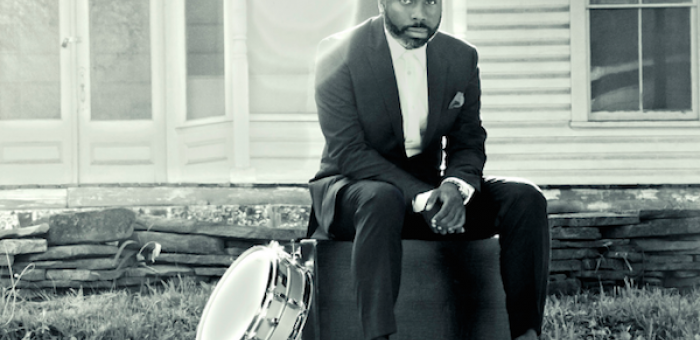
Nate Smith will release KINFOLK: Postcards From Everywhere (Waterbaby/Ropeadope) in February 2017.
(Photo: Courtesy the artist)Drummer Nate Smith is all about carving his own path. But he also understands the importance of paying dues to those who blazed the trail before him, as well as those who walk beside him.
A largely self-taught musician, Smith has amassed an impressive list of teachers and peers in his impressive career to date: Legendary jazz vocalist Betty Carter was an early mentor, and he’s since become a close collaborator with fellow drummers Karriem Riggins and Eric Harland and saxophonist Chris Potter, among others.
DownBeat caught up with Smith at this year’s Detroit Jazz Festival to discuss his journey from a prominent sideman to the leader of KINFOLK, his homegrown collective of musicians. The group will release its first album, KINFOLK: Postcards From Everywhere, in February 2017 on Waterbaby Music/Ropeadope Records.
Let’s talk about your experience growing up in Virginia. Did you come from a musical family? And do you think your sense of community shaped your overall approach to music?
I grew up in Chesapeake, Virginia, which is about 20 minutes inland from the beach. In the area that I grew up in, there wasn’t really a thriving jazz scene, but there were tons of musicians everywhere. My dad was not a musician but he loved records; he had a huge record collection. I listened to his records, and I learned mostly by ear. He wasn’t a straight jazz guy, but more of an instrumental r&b guy—Jazz Crusaders, Grover Washington, Bob James, David Sanborn. This is pre-smooth jazz … before the invention of smooth jazz [laughs]. Those were the records that I grew up listening to, and the drummers that I ended up mimicking were the guys on those records.
And then my brother introduced me to alt-rock in the 1980s—The Police and King Crimson. He was also into Earth, Wind & Fire, and so was dad. That was another thing that kind of crept in.
I didn’t start playing until I was around 11. The church is a big component, especially for most black musicians. My church was a quiet church; drums came out on special occasions only. It was A.M.E., so we weren’t shouting every Sunday [laughs]. So when the drums came out, it was kind of a big deal.
You’re part of this illustrious group of musicians to come out of Betty Carter’s Jazz Ahead program, an international jazz residency. Talk about the experience, especially being tapped by Carter herself.
To be completely honest, I didn’t really know much about Betty. We weren’t a jazz house. But when I got the call, I did all the research and I found out everything I could. I went out and bought [the 1979 album]The Audience With Betty Carter, which is definitely my favorite record by her. And I listened to Kenny Washington, Curtis Lundy, John Hicks.
There’s a lot of history with Betty. She had a reputation for being a bit abrasive with some of the kids, but for whatever reason—I think it was because I was just so green and happy—she was very kind to me and very nurturing. Betty was the first one to tell me, “You have something special and you should try this.” That meant a lot.
Given your experiences and the musicians you encountered, were you ever conflicted about the type of drummer you would become?
I’ve never felt compelled to do one thing or another. I just wanted to follow my interests. For a while, I was playing a lot of 1950s Miles Davis—Jimmy Cobb is my guy. I studied that ride cymbal; I studied the way he played. Other times, I went through a Bernard Purdie phase. Mimicry has always been the way in for me. Once you really understand the language of a player, regardless of the style, you find a way to make it yours. I realize that there are distinct schools of thought about it, but I’ve never felt an internal conflict. I just play what I like regardless of the style or genre.
You’re a largely self-taught musician. Do you view that as an advantage?
One of the things about being mostly self-taught is that you develop a unique voice. If you’re coming out of conventional drumming, there is a certain pipeline that they follow: starting out in musical cities, musical families, performing arts schools. If you don’t come from that, you’re kind of figuring it out as you go.
That hearkens back to the time before there were jazz studies programs—where the only classroom that existed was on the bandstand.
Right! And the teachers were the bandleaders and the other musicians. There’s a reason why the hard-bop era sounds different from previous eras, because the musicians were listening to each other, and they were listening to other stuff outside the jazz world.
Let’s talk about your work as a bandleader with KINFOLK. Explain its origins and what lies ahead for this effort.
You’re born into a family of people, you grow up and go out into the world, and then you find a family. When I came to New York, even though I had already been here and seen some musicians my age, I really was searching for a musical family. A lot the guys, especially the guys on the record—Dave Holland, Chris Potter, Lionel [Loueke], Jaleel Shaw, Amma Whatt, Gretchen Parlato—I had never worked with before, but everyone who’s on this record is a very unique musician.
There’s a recurring theme of straddling both young and old. Maybe it’s intergenerational. Who knows? But it’s all connected by this idea of authenticity, regardless what the rules are. That’s the tie that binds it all together.
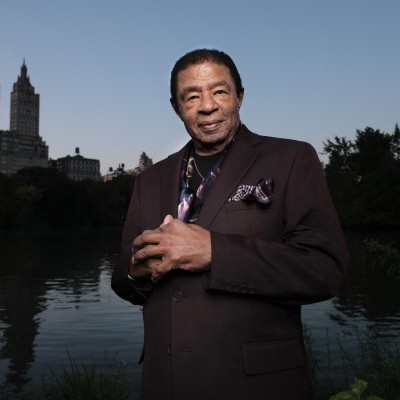
“What I got from Percy was the dignity of playing the bass,” Buster Williams said of Percy Heath.
Aug 26, 2025 1:53 PM
Buster Williams, who at the age of 83 has been on the scene for 65 years, had never done a Blindfold Test. The first…
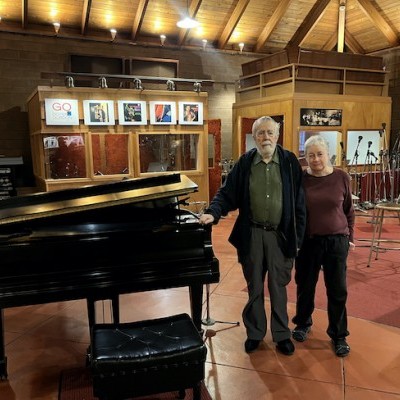
Don and Maureen Sickler serve as the keepers of engineer Rudy Van Gelder’s flame at Van Gelder Studio, perhaps the most famous recording studio in jazz history.
Sep 3, 2025 12:02 PM
On the last Sunday of 2024, in the control room of Van Gelder Studio, Don and Maureen Sickler, co-owners since Rudy Van…
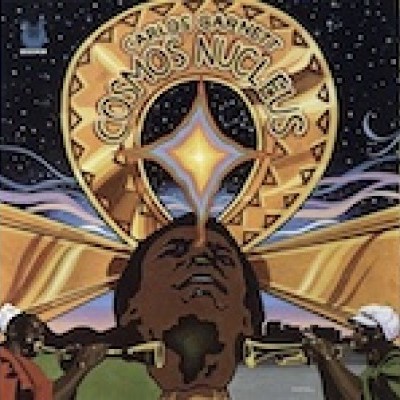
The Free Slave, Cosmos Nucleus and Sunset To Dawn: three classic Muse albums being reissued this fall by Timer Traveler Recordings.
Aug 26, 2025 1:32 PM
Record producer and “Jazz Detective” Zev Feldman has launched his next endeavor, the archival label Time Traveler…
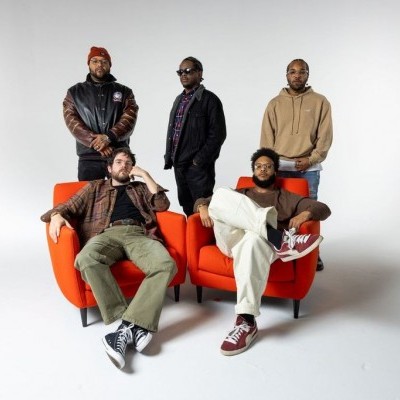
Butcher Brown, clockwise from top left: Marcus Tenney, DJ Harrison, Morgan Burrs, Corey Fonville and Andrew Randazzo. (Keyboardist Harrison couldn’t make the gig, so special guest Jacob Mann sat in with the band at the Reno Jazz Festival.)
Aug 19, 2025 12:41 PM
The band known as Butcher Brown has enjoyed the last half-decade basking in the glow from the twin engines of critical…
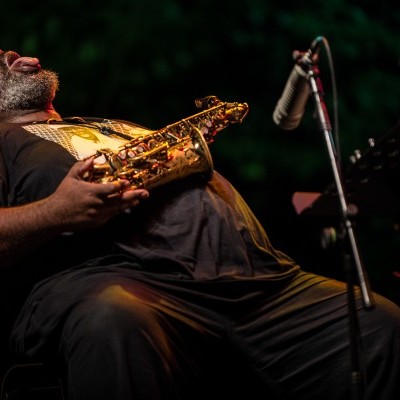
This year’s Jazz em Agosto set by the Darius Jones Trio captured the titular alto saxophonist at his most ferocious.
Aug 26, 2025 1:31 PM
The organizers of Lisbon, Portugal’s Jazz em Agosto Festival assume its audience is thoughtful and independent. Over…